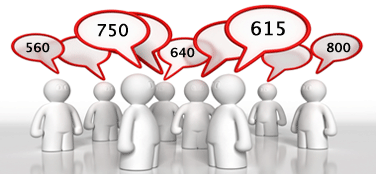

- Credit 101
- Teaching Tools
- Scores
- Life Stages
- Credit Mishaps
- Understanding Different Bankruptcy Chapters
- Your Credit Report After a Bankruptcy
- Understanding Judgments
- Inaccuracies on Your Credit Report
- Disputing Credit Report Errors
- Understanding Foreclosure
- The Foreclosure Process & What To Do Afterwards
- Understanding Identity Theft
- In the event of: The Death of a Spouse
- Rebuilding Your Credit
- Choosing a Reputable Credit Counselor
- Avoid the Downside of Credit Mismanagement
- What is a Credit Freeze
- Worksheets & Letters
- 6 Steps to Creating a Budget
- Household Budget: Wants vs Needs
- Personal Budget Template
- Understanding Amortization Schedules
- Loan Amortization Calculator
- Sample Opt-Out Letter
- Sample Dispute Letter
- Annual Credit Report Request Form
- Auto Loan Payment Calculator
- Back-to-School Budgeting
- Cost of Credit
- Emergency Fund
- How Much Car Can You Afford
- How Much House Can You Afford
- How Much Will College Cost
- How Much Will My Loan Cost
- How Will My Savings Grow
- Mortgage Payment
- Mortgage Refinancing
- Pay Down Debt or Invest
- Repaying Student Loans
- Retirement Fund
- Rework Your Budget
- Saving for a Goal
- Should I Consolidate My Debt
- Travel Budgeting
- Your Holiday Budget
- Buying a House
- 5 Steps to Buying a Home
- 5 C's of credit When Applying for a Loan
- What Score is Needed to Purchase a Home
- Using a Realtor
- Understanding Fixed Rate Mortgages
- Understanding FHA Loans
- Understanding VA Loans
- Understanding Interest Only Loans
- Understanding ARM Loans
- Understanding Combo Loans
- Understanding Streamline K Loans
- Understanding Bridge Loans
- Understanding HELOC (Home Equity Line of Credit)
- Understanding Reverse Mortgages
- Basic Mortgage Underwriting Principles
- Credit & Financial Law
- Home

Creating a Household Budget: Wants vs. Needs
Personal Budget Template (requires Microsoft Excel)
Understanding Amortization Schedules
Loan Amortization Calculator (requires Microsoft Excel)
Sample Opt-Out Letter (requires Adobe Reader)

Creating a Household Budget: Wants vs. Needs
Your Needs
For many people, distinguishing between wants and needs can become a problematic area when it comes to household budgeting. While it's true that restaurants offer food, it's likely that there are cheaper options available, such as eating at home.
The same holds true for most other needs. Take clothing, for example. It may be tempting to shop with specific designers or brand names in mind, but there are often less expensive alternatives available to provide you with your basic needs.
So, let's look at your household budget. We're sure it contains line items for food, clothing, housing, utilities, and other essentials. These are your basic needs, the things you need for survival. Before moving on to your wants, it's recommended to review your "needs" to see if cheaper alternatives are available.
A friendly warning: During the process, you'll need to be completely honest with yourself; it can be tough to admit that some of the things you consider essential are actually things that you don't absolutely need or things that can be acquired for less money.
Here's another example: We covered clothing and "eating at home versus eating out" already. But what about shelter? Are there cheaper houses or apartments you could consider? What about utilities? Are there savings opportunities in this area?
Your Wants
Our wants can be a bit trickier to understand. By definition, our wants are the things we would like to have, but could live without. For example, many people want a cell phone. However, how many of us actually need one?
As much as some people may not like to admit it, cell phones and many other electronic gadgets are largely conveniences. They do make life easier, but that's not the point. The point is that there is a cost associated with these things and you must ask yourself whether your budget can accommodate that expense.
Again, keep in mind that we're primarily talking about people who are likely experiencing household budgeting or debt management issues at the moment. For those with money leftover after budgeting for their needs, purchasing wants is not as large a problem. However, the leftover money may be more effectively utilized.
Recommended Action
- First, take a hard look at your own wants and needs.
- Address and budget for your needs first.
- Next, make sure you're paying down your debt.
- Consider setting some money aside in a savings account.
- Finally, enjoy the extra money you do have. Knowing you can afford that dinner out, that cell phone, that brand name jacket, etc. can make the experience much more enjoyable.
After taking care of all of your essentials, your leftover money is known as discretionary income. What you do with your discretionary income is certainly up to you. The key is knowing what money is truly extra and avoiding a situation in which you’ll accumulate unwanted debt.
